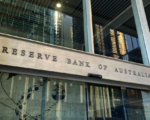Inflation in the U.K. remained stable in August, according to data released by the Office for National Statistics (ONS) on Wednesday, aligning with predictions from analysts. The headline consumer price index (CPI) remained at 2.2%, the same as July’s figure and in line with forecasts from a Reuters poll. This steady reading follows 2% CPI rates in both May and June, matching the Bank of England’s (BoE) target.
Following the news, the British pound rose slightly by 0.18%, trading at $1.3183 early Wednesday morning.
Services Inflation Rises:
One area of particular interest to the BoE is services inflation, which increased from 5.2% in July to 5.6% in August. The rise in this category is closely watched as it reflects domestic price pressures. Core inflation, which excludes volatile items like energy, food, alcohol, and tobacco, also rose, hitting 3.6%, up from 3.3% in July.
According to the ONS, the largest upward pressure on prices came from higher airfares, which increased significantly compared to last year. However, motor fuel prices, along with hotel and restaurant costs, saw notable declines.
Monetary Policy Outlook:
The BoE is scheduled to meet on Thursday for its next monetary policy decision. While there were earlier bets of a second consecutive 25 basis point rate cut, these predictions have since been revised downward, with traders now placing the probability at 28%.
Richard Carter, head of fixed interest research at Quilter Cheviot, noted that while recent economic data pointed to stagnation in the U.K.’s output and a slowdown in wage growth, the stickiness of core inflation complicates the BoE’s decision-making process. Carter suggested that the BoE might adopt a more cautious approach compared to the U.S. Federal Reserve, which has maintained a more aggressive stance.
Ruth Gregory, deputy chief U.K. economist at Capital Economics, shared similar concerns about the rise in services inflation, predicting that upward pressure on prices could persist, especially with potential increases in utility costs on the horizon. Gregory expects the BoE to hold off on further rate cuts until November, with additional cuts likely to be spaced out until mid-2025.
Economic Planning and Inflation Management:
Ahead of the U.K.’s Autumn Statement, set for October 30, the new Labour government will present its budget plans. Chief Secretary to the Treasury, Darren Jones, acknowledged that while inflation is becoming more manageable, substantial efforts are still needed to address deeper economic challenges.


















